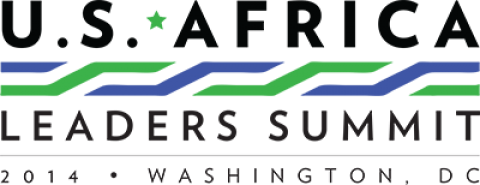
The following article was published in the September-October 2014 NewsNotes.
The first ever U.S.-Africa Leaders’ Summit, held August 4-6, has come and gone. Assessments of the Summit’s impact are now underway both in the United States and in Africa. In effect, there were two different Summits: the official government-sponsored, business-oriented Summit and a series of alternative gatherings and forums such as Empowered Africa: A Progressive Dialogue sponsored by Howard University and several Africa-affiliated organizations, networks and university departments. Evaluations of the Summit by government, business leaders and civil society organizations vary.
News of the Summit had to compete with publicity about the outbreak of Ebola in several West African nations as well as some very controversial behavior during the Summit by security agents of at least three African nations. A local resident captured one such incident when he filmed a security agent from the Democratic Republic of the Congo (DRC) stomping on a demonstrator protesting the DRC delegation to the Summit on the streets of downtown Washington, D.C. This agent was not arrested and was allowed to return to the DRC.
True to its intended focus, the official Summit was dominated by business concerns. The U.S.-Africa Business Forum played a dominant role in the organization and implementation of several key events during the three day gathering. A shorthand description of the Summit could be: developing a public-private partnership between the U.S. government/business interests and African nations. An essential element of such a feature of this investment-oriented foreign policy is the promotion of a friendly commercial and legal environment in which U.S. corporations can do business.
This approach is typical of the Obama administration’s orientation towards Africa. Where Bill Clinton is said to have favored programs like the Africa Growth and Opportunity Act as the way to promote development, and George W. Bush’s legacy regarding Africa will be the PEPFAR health program, President Obama is taking a different approach, marked by an emphasis on policies to complement the limited resources the U.S. government is devoting to programs designed to attract foreign investment, such as Power Africa and Feed the Future. The belief is that investments by foreign companies like General Electric ($2 billion for power projects) will drive growth which will create opportunities for meaningful development. Critics of this simplistic way of thinking say that while economic growth in Africa is essential, nothing important will happen in the next 10 years without a deeper transformation of African economies’ structures. (See 2014 African Transformation Report: Growth with Depth.)
There was more to the Summit than discussions about economic development. Understanding that widespread violence undermines progress and development, Summit organizers included updates on ideas and programs that aim to combat terrorism and the spread of lawlessness. Two new initiatives were announced by President Obama: the Africa Peacekeeping Rapid Response Partnership (A-Prep) and the Security Governance Initiative. The first program will spend $110 million annually for 3-5 years on equipment, transportation and logistics that would allow African militaries to move more quickly into conflict zones. Six countries will share the money for this program: Senegal, Ghana, Ethiopia, Rwanda, Tanzania and Uganda. A much smaller amount – $65 million for the first year – will go to Ghana, Kenya, Mali, Niger, Nigeria and Tunisia, for local security services and the promotion of democratic governance. (See related article in March-April 2014 NewsNotes.) Unlike the Defense Department’s AFRICOM program, this initiative will be based in the State Department.
Some believe that one danger in such programs is that the continent of Africa, with its more than one billion inhabitants and 54 nation-states, with numerous interrelated challenges, will be viewed through a narrow and distorting lens of counter-terrorism.
In the end, not only were the civil rights of members of the diaspora living in Washington trampled upon by agents of the DRC government, the official Summit itself dealt very little with human rights issues, despite a forum held June 18-20 in Washington, D.C., organized by Amnesty International USA, Freedom House, Front Line Defenders, Open Society Foundations, and the Robert F. Kennedy Center for Justice and Human Rights. The event brought together leading African human rights defenders who focused on three broad themes: the rule of law, transparency and accountability, and discrimination against marginalized groups. Participants formulated a Plan of Action which highlighted concerns that should have been integrated into the Leaders’ Summit and offered concrete policy recommendations that link respect for human rights and broader development objectives.
